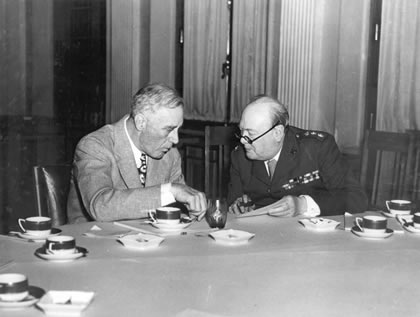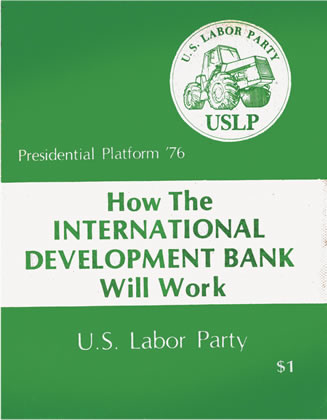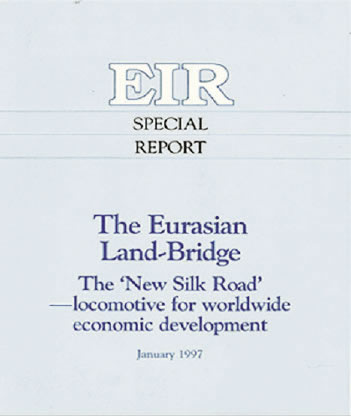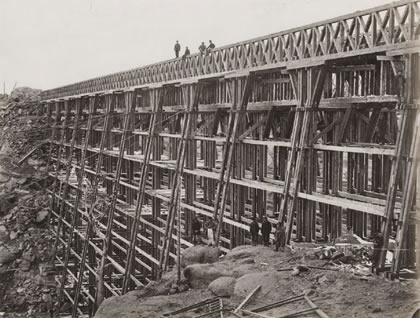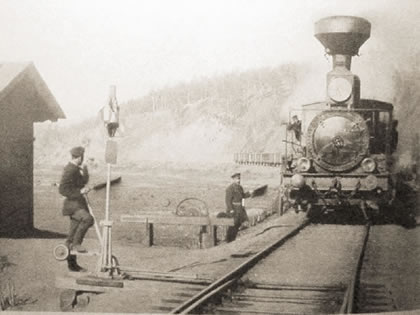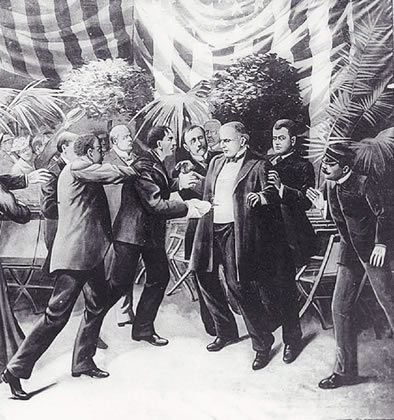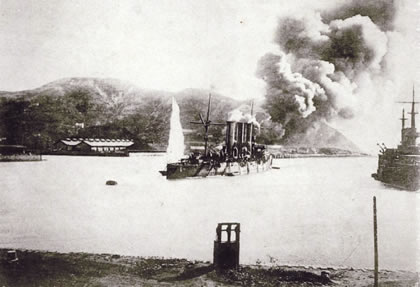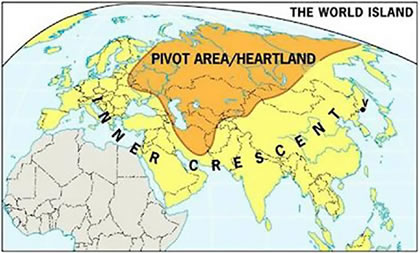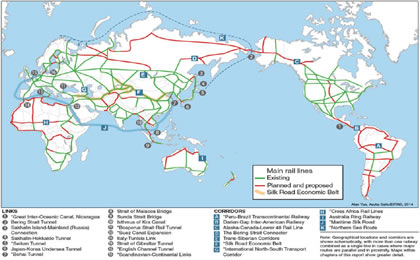Will Wertz in Manhattan
Britain Is the Enemy Behind ‘Russiagate’
September 2017
A PDF version of this article appears in the September 22, 2017 issue of Executive Intelligence Review and is re-published here with permission.
The following is an edited version of remarks delivered by William F. Wertz, Jr. in New York City on September 9, 2017. Wertz’ presentation was given in the context of a day-long conference, “The ‘Russian Hack’ Inside Job: Who’s Trying To Destroy The Presidency and Start a World War with Russia?” sponsored by Executive Intelligence Review. That conference also included presentations given by Ray McGovern and William Binney, both leaders of the Veteran Intelligence Professionals for Sanity (VIPS). See EIR, Sept. 15, 2017.
Will Wertz: I’d like to start by wishing Lyndon LaRouche a Happy Birthday, which was actually yesterday. It was his 95th birthday. I also want to express my gratitude, the gratitude of the LaRouche movement, for the courageous efforts undertaken by Ray McGovern, and Bill Binney, and the VIPS in the fight for truth. The German poet Friedrich Schiller, in his writing on universal history, said “What greater gift than truth has any man to give to man?” What they have developed in terms of the forensics analysis, which they will present later, is extraordinarily important, because it undermines the entire lie which has been used to mobilize against Russia, against the Presidency of the United States, and against the possibility of a new paradigm for humanity as a whole.
Now, many years ago, actually about 2,500 years ago, Plato wrote two dialogues among others—the Timaeus and the Critias. What he discusses, in both of those, is a flood which wiped out an entire civilization. In the Timaeus, Plato reports that an Egyptian priest said to Solon, “You Hellenes are never anything but children. There is not an old man among you. . . . There have been and will be again, many destructions of mankind arising out of many causes. The greatest have been brought about by the agencies of fire and water.” He points out that the reason these civilizations were unable to deal with such natural disasters is that “The gods’ part in them began to wax faint . . . and they began to behave themselves unseemly. They were taking the infection of wicked coveting and the pride of power.” Now fortunately we have in the United States, some old men—particularly Lyndon LaRouche—who, in fact, is younger than most people in terms of his mind.
LaRouche’s Fight
What I want to do is to lay out exactly what LaRouche has fought for, in a thumbnail sketch, because I don’t have enough time to do this in depth. But Lyndon LaRouche has fought against the British Empire, stemming back at least to his time in World War II on the Indian subcontinent and in Burma, which were part of the British Empire at that time.
|
President Franklin Roosevelt (left) making a point to U.K. Prime Minister Winston Churchill at the Yalta conference, Feb. 4, 1945. |
He saw first-hand the genocidal policy of the British against the Indian population. At that point, he developed a lifelong commitment to defeating the British Empire, and to doing what Franklin Roosevelt told Winston Churchill during the war that he was committed to doing. Roosevelt said: We are not fighting World War II to preserve the British Empire; after World War II, we are going to use American System methods of economic development to develop the rest of the world.
Unfortunately that mission of Roosevelt was sabotaged after his death by Winston Churchill and by Harry S Truman, a very small-minded man. Instead, the first mobilization against Russia took place, and specifically against the alliance which Roosevelt had been committed to—which was an alliance between the United States, Russia, China, and other nations to develop the planet using American System methods.
Looking at Lyndon LaRouche’s fight over a number of decades, I would just point out a few things. First of all, Lyndon LaRouche is an original thinker in the tradition of Nicholas of Cusa, and of Gottfried Leibniz. He’s an economist who has correctly forecast economic developments over any number of decades.
• He was alone in forecasting the 1971 end of the Bretton Woods system, a forecast for which he was ridiculed by establishment economists—until it happened. He also foresaw the disastrous results of Nixon’s Aug. 15, 1971 action. He has put forward solutions over decades which, if they had been acted upon, would have created a completely different situation on this planet Earth and beyond.
|
View full size
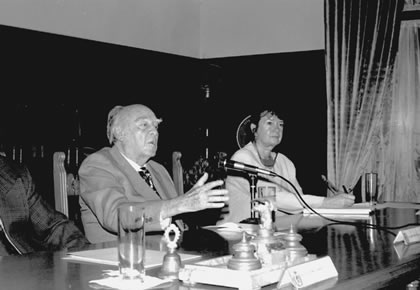
EIRNS/Ruben Cota Meza
Former Mexican President José López Portillo and Helga Zepp-LaRouche, participating in a meeting in Mexico City, Dec. 1, 1998. |
• In 1975, he called for an International Development Bank.
• In 1977, he called for a Third National Bank of the United States.
• In the late 1970s, and then into the beginning of the Reagan Administration, he worked for what Reagan later announced in March 1983 as the Strategic Defense Initiative (SDI), as a means of eliminating the danger of thermonuclear war between the United States and Russia.
• In 1982, he called for Operation Juarez, which was to be a model for North-South relations between the United States and Mexico, whereby technology would be transferred to Mexico in exchange for oil, to develop the economy of Mexico. All of the problems that we’ve had since then, surrounding NAFTA and related issues, are a result of the failure to economically develop Mexico and also Central America.
• In 1983, he put forward a program for the long-term economic development of the Pacific and Indian Ocean Basins.
• In 1990, he and his wife Helga Zepp-LaRouche put forward the idea of the Productive Triangle, which was a concept of economic development corridors between Paris, Berlin, and Vienna. That was later extended, after the fall of the Soviet Union, to a call for a Eurasian Land-Bridge.
• In 1990, he put forward a program called the Oasis Plan, for economic development in the Middle East, which would have been the basis for solving the Israeli-Palestinian crisis.
• In 1997, he called for a New Bretton Woods conference to create a “new financial architecture,” as Bill Clinton later called it before Clinton came under attack. This would have been the basis for economic development throughout the world.
• In 1997, the EIR published a special report titled The Eurasian Land-Bridge: the ‘New Silk Road’. That’s 20 years before the development of the One Belt, One Road—the Silk Road policy which is now becoming hegemonic throughout the rest of the world.
The British Hand
I want to focus on the reason there is this present attack on Russia, and why there is an attack on President Trump. I would maintain that the main reason is the anti-Trump role of the British empire, an empire which emphatically does exist; it may exist in a different form than it existed prior to World War II, but it does exist, and it exerts influence throughout the world, and specifically also in the United States.
The British have been involved in the attack on Russia and President Trump from the very beginning. It’s been documented in the press; there’s a Guardian article that stated that the Government Communications Headquarters of Britain [GCHQ]—which is their equivalent of the NSA—began to surveil Trump as far back as 2015, just after Trump announced for President. That’s back in 2015.
Then came the case of British MI6 agent Christopher Steele, who developed the so-called dossier which has been the roadmap for various intelligence agents in this country who were associated with the Obama Administration and Hillary Clinton, and who have carried out the continuing campaign against Russia and against President Trump.
The basic motivation is to prevent a situation in which Lyndon LaRouche could actually influence the policies of President Trump, as LaRouche influenced and shaped the policies of Reagan in respect to the SDI, and also had the impact of organizing President Clinton to move toward a new financial architecture before he was subjected to an impeachment operation.
An ‘Asiatic Grand Central’
What has President Trump done? During the campaign, he made some of his principles very clear. He wants to work with Russia. It would be a good thing to work with Russia to fight terrorism, in particular. He’s opposed to regime change policies which had dominated United States policy from the Bush Administration through Obama, and would have been continued under Hillary Clinton.
Additionally, he sent a delegation to Beijing for the One Belt, One Road conference in May. There is at least the potential for President Trump to move the United States into this new geometry of the One Belt, One Road.
In terms of economic policy—and this has not yet been acted on—he expressed his commitment to the American System of political economy in a way in which no other President of the United States has done since Franklin Roosevelt. On October 26, 2016 in Charlotte, North Carolina, he called for a 21st-century Glass-Steagall.
Then, on March 15, after he had become President, in a speech at Willow Run, Michigan, followed by a speech on March 20 in Louisville, Kentucky, and at a speech at the National Republican Congressional Committee on March 21, he called for the American System of Alexander Hamilton, George Washington, and Abraham Lincoln.
He specifically said in the last speech, “Our first Republican President, Abraham Lincoln, ran his first campaign for public office in 1832 when he was only 23 years old. He began by imagining the benefits a railroad could bring to his part of Illinois, without ever having seen a steam-powered train. He had no idea, and yet he knew what it could be. Thirty years later as President, Lincoln signed the law that built the first Transcontinental Railroad, uniting our country from ocean to ocean.”
|
Andrew J. Russell/Yale University Collection
Dale Creek Bridge during the construction of the Union Pacific Railroad, 1864-1869. |
The Lincoln Transcontinental Railroad was the inspiration for the Trans-Siberian Railroad in Russia. It was also the inspiration for a much broader grand strategy in the 1890s, which was a precursor to what we’re seeing today with the One Belt, One Road policy of the Chinese which has also been advocated by Russia. This goes back to the perspective of Gottfried Leibniz, who wrote: “I consider it a singular plan of the fates that humanity’s cultivation and refinement should today be concentrated, as it were, in the two extremes of our continent—in Europe, and in China, which adorns the Orient as Europe does the opposite edge of the Earth. Perhaps supreme providence has ordained such an arrangement, so that as the most cultivated and distant people stretch out their arms to each other, those in between may gradually be brought to a better way of life. I do not think it an accident that the Russians, whose vast realm connects Europe with China and who hold sway over the deep barbarian lands of the north by the shore of the frozen ocean, should be led to the emulation of our ways through the strenuous efforts of their present ruler”—referring to Peter I. This conception of Leibniz in the 1600s, of a bridge for humanity from Europe through Russia to China, is what we’re actually seeing as a potential right now. And the British want to stop it.
Our enemy has always been the British Empire. We fought a revolution against the British Empire; they burned down the White House in 1812, and they supported the Confederacy in the Civil War. It was the Russians who effectively supported the American Revolution with the League of Armed Neutrality, and it was the Russians, particularly Czar Alexander II, who intervened in the Civil War against the British by sending his fleet to San Francisco and New York, to prevent any further British support for the Confederacy.
In the 1890s, an alliance based on the American System of political economy was developed. It involved the French, the Germans, and the Russians, in particular. First of all, just let me mention Japan. Henry C. Carey, who was an advisor to Abraham Lincoln, sent one of his colleagues, E. Peshine Smith, to Japan, and introduced American System economic policies, which contributed to the Meiji Restoration. In the 1890s, Gabriel Hanotaux, who was the Foreign Minister of France, put forward a policy he called the “Asiatic Grand Central.”
|
Wikimedia Commons
The Trans-Siberian Railway in the Nineteenth Century. |
This is his later description of it in retrospect: “Starting from Orenburg on the River Ural, this railroad would have gone as far as Peshawar on the Indian frontier; joining the Russian system to the Anglo-Indian system of railways across central Asia. It would have been the communication between the Trans-Siberian on the one hand, and the Baghdad Railroad on the other”—which was being built by Germany from Berlin to Baghdad. “The object was to join European railways with the Anglo-Indian railways and beyond, with future Chinese railroads.”
|
View full size
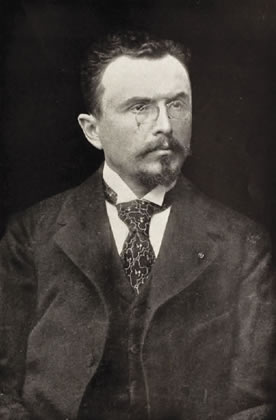
Gabriel Hanotaux
 View full size 
Sergei Witte |
At the same time, Count Witte in 1892 became effectively the Transport Minister of Russia, and then later in the year, Finance Minister. He envisioned “A new path and new horizons, not only for Russia but for world trade.” This is the Trans-Siberian railroad. “It would rank as one of those world events that usher in new epochs in the history of nations, and not infrequently bring about the radical upheaval of established economic relations between states. And would, particularly in relation to the Asian nations, provide the basis of recognition of tangible, mutual interests in the field of worldwide economic activity of mankind.”
This is also the conception of President Xi Jinping of China today: a “win-win” approach, based on mutual interests. It was also the American policy of John Quincy Adams, to create a community of interests among a family of sovereign nation-states.
The British Empire Is the Enemy
At that time the British moved in to kill this whole perspective. And that’s precisely what they’re attempting to do now.
|
T. Dart Walker
The assassination of President William McKinley at the Pan-American Exposition reception, Sept. 6, 1901. |
At that time, specifically, in Germany, Bismarck was forced out in 1890; in 1892, Jules Ferry, who was a mentor of Hanotaux, was assassinated. Sadi Carnot, the President of France, was assassinated June 1894. McKinley was assassinated 1901. And Witte was dismissed in 1903. This is precisely the kind of regime-change policy which the British and their agents in the United States are attempting against the U.S. Presidency today, in order to prevent this kind of—as Hanotaux said at that time—“Asiatic Grand Central.” But now we’re talking about a World Land-Bridge.
There were additional moves by the British at that point. For instance, on July 16, 1894, the Anglo-Japanese Treaty of Commerce and Navigation was signed, which was to go into force on July 17, 1899—five years later. But within two weeks of the signing of that treaty—on August 1, 1894—the Sino-Japanese War was launched, which was centered on Korea. Many of the problems that we have today in the Korean Peninsula, date back to this whole operation by the British.
|
Imperial Japanese Navy General Staff
Japanese bombardment of the Russian fleet at Port Arthur the day before the formal declaration of war between Russia and Japan. |
In 1895, the Japanese seized Taiwan. Then the Commerce and Navigation Treaty was further developed in 1902, with the Anglo-Japanese alliance that was signed on January 30. After Hanotaux had been removed from office, the British also moved forward to create the Entente Cordiale between Britain and France in 1903-04. Then there was the first Russian Revolution in 1905, and then the Triple Entente involving Russia, Britain, and France in 1907.
With the killing of McKinley, Teddy Roosevelt came to office in the United States, and the close relationship between the United States, Germany, and Russia which existed under McKinley was completely reversed. Teddy Roosevelt went in the direction of a special relationship between the United States and Britain, our enemy.
It is probably not insignificant that Teddy Roosevelt’s uncle, James Bullock, had been in exile in Britain ever since he was the foreign agent for the Confederacy during the Civil War. This was the source of Teddy Roosevelt’s pro-British policy.
|
FIGURE 1
Sir Halford Mackinder’s Heartland concept. |
So what I’m suggesting here is that we see, at that time, a direct example of how the British Empire operates. That policy was further developed in 1928. This is a geopolitical map [Figure 1] that was produced by the British geo-politician Halford Mackinder. The basic idea was to look at Europe, Africa, and Asia, as the world island. The British policy was to surround what they called the pivot area or the heartland, which is Russia, with an inner crescent.
The basic theme of Mackinder was that “Who rules East Europe, commands the heartland. Who rules the heartland, commands the world island. Who rules the world island, commands the world.” This was their geopolitical strategy; this is the strategy which was also developed by Haushofer under Hitler, and resulted in the Nazis’ project for an attack on Russia, which was supported by the British until Hitler turned west as well.
But if you look at this map, think in terms of the eastward movement of NATO in Europe. Think of the crisis on the Korean Peninsula today. Think of Afghanistan, previously and also today. Think of the Arab Spring and the regime-change policies carried out by Bush and Obama in Iraq, in Libya, the attempt in Syria, and the attempt in Egypt. This is the policy which is still hegemonic even after the fall of the Soviet Union. It is this policy which must be defeated. It is possible that President Trump will move against this, and will actually work with Russia and China for a revival of the Eurasian Land-Bridge conception.
A Grand Strategy for Peace
It’s very important that people understand the nature of the grand strategy which Lyndon LaRouche has been committed to, and what his wife Helga Zepp-LaRouche is committed to—a grand strategy for humanity, as against the oligarchical principle of the British empire, where for us, economic development is the basis for peace. It’s the basis for cooperation among different nations throughout the world. It’s John Quincy Adams’ conception of a community of principle among a family of sovereign nation-states, where man can actually then carry out his mission, which is not only to develop the planet for man, but also to explore and colonize space.
Going back to the Critias and the Timaeus, which I mentioned at the beginning, the point is that man is confronted with floods, he’s confronted with fire—and in this case with hurricanes. The basic point is that there are acts of omission and acts of commission which result in a destruction of humanity. The acts of omission include not building the infrastructure that could actually mitigate hurricanes and so forth. There’s an act of omission, if you don’t work with Russia and China on a joint strategy to prevent asteroids striking the Earth.
Then there are also acts of commission, which include unjust wars—which is fire, thermonuclear fire. There are also acts of commission, including financial policies which are designed from the standpoint of enforcing zero economic growth and population reduction, which have been the policy of the British Empire.
I think, as Lyndon LaRouche has said, victory is within our reach, if we move right now, because we now have a different situation than in the 1890s and the beginning of the 1900s. That situation resulted in over a hundred years of war—two world wars, and then perpetual warfare, with short breaks, after World War II.
Today we have the potential to actually win, and the basic point is we have to break out now and seize the moment to put together an alliance, which LaRouche has called the Four Powers—the United States, Russia, China, India—to defeat the British empire. This would be a liberation of the people of the United Kingdom. It’s not aimed at the British people. In the United States, we have to move with what LaRouche has called the Four Laws: This is a policy of Glass-Steagall, national banking, in the sense of Roosevelt’s Reconstruction Finance Corporation and Hamilton’s National Bank, to issue credit for economic development. We cannot operate from the standpoint of the miserly conception that “we can’t spend the money to save people.” We’ve spent trillions to save bankrupt banks! We spend trillions to carry out unjust regime-change wars. What we need to do is to invest in people: Save the people, and cancel the British system.
Discussion: Victory Is Within Reach
Question: As far back as the late 1800s, in China, after China was beaten by Great Britain in the Second Opium War, I think Lincoln sent as his ambassador a man by the name of Burlingame, and then later Wharton Barker, to help with the development of the railway in China. I know that the great Dr. Sun Yat-sen, in 1907, wrote The International Development of China, which was the roadmap for developing China’s industrial and economic capability. So all the railways, all the waterways, everything that China is now today doing, come from blueprints from Dr. Sun, and essentially—it seems to me—from Lincoln.
Can you comment on the future of potential collaboration between China and the United States, and the collaboration around infrastructure development?
Wertz: What you developed is precisely the case. For instance, the entire plan of Hanotaux and of Witte, was to make sure that the trans-Siberian Railroad actually went through Manchuria. The basic idea was to free China from the British. There were two Opium Wars in the 1800s, prior to this period; there was also a brief war between the French and the Chinese in the Vietnam area. Sun Yat-sen is another reflection of exactly how Lincoln’s policy was spread, in terms of the ideas, through Europe, Russia, China, and other locations.
|
The World Land-Bridge Network—Key Links and Corridors
|
The irony is that China has actually been engaged in precisely what Franklin Roosevelt was committed to: To develop the world through American methods, like the Tennessee Valley Authority, or the Grand Coulee Dam, the locks in the St. Lawrence Seaway, or the Boulder Dam, and the Four Corners policy of Franklin Roosevelt. He wanted to spread this throughout the world. And that was based upon Alexander Hamilton. Graham Lowry’s book discusses this: The British did not want the United States to move west, to develop the continent as a whole. And this was the perspective of the Founding Fathers—to move west, and eventually this was consolidated with the Transcontinental Railroad of Lincoln.
The basic point here, as Lyndon LaRouche said the other day, is that victory is within reach. Because we do have some adults who are creative in leadership positions in the world today, which has not always been the case. There was a recent article in the China Daily, which featured an interview with Helga Zepp-LaRouche. She reported that she had gone to China back in the 1970s during the Cultural Revolution, and saw the devastation that existed there. And then she returned much later with the perspective of the Silk Road. And there’s an appreciation in China of the role that the LaRouches, and particularly Helga in terms of China, have played.
You see what Lyndon LaRouche has done, really from the 1970s. He wasn’t just concerned about the United States. He functioned, as Schiller said, “as a patriot of his own country, but also as a citizen of the world.” He was elaborating programs for development for the entire world, in the spirit of what Franklin Roosevelt told Winston Churchill that America was going to do, as opposed to what the British Empire wanted to do.
That is where we are today, and I would just say, as I stressed, this is what’s at stake right now. It’s really up to, in this country, the American people—but obviously throughout the world, for people to really understand this: that you’ve got rise to the level of grand strategy, of a grand design for the world, for humanity as a whole. You’ve got to approach it from that standpoint. Yes, fight for your own people, but you also have to fight for humanity as a whole—and it has to be based on truth and the question of justice.
And I think that’s really the issue, and we’ve got to mobilize to make sure that this succeeds at this moment.
Question: I’m from New York. One of my many interests in this world is to remind people that they can think for themselves. They don’t need a media outlet to tell them what to think. I’m in the business of teaching people how to think. So, it pains me, not as just an educator but as a human being, when I see other Americans hoodwinked by things like Russia-gate. When you look at just New York City alone, we have a failing infrastructure, with a subway system that is overcrowded and over-packed. We have roads that people can’t even drive on any longer—and yet people care about how many scoops of ice cream Trump gets every day. So, the essential question here is, how do we make sure that this is the last time a Russia-gate happens, so that people can now, instead of talking about themselves, or worrying about what their President eats—they can worry about fixing their own country, fixing their own state, ensuring that people can be educated—the real issues?
Wertz: I think the American poet Edgar Allan Poe addressed the issue most directly in a short story called “Mellonta Tauta,” because what he said there is that the oligarchy is able to control a population to the extent to which it is convinced that there are only two pathways to truth—empiricism and logical deduction. If you look at all of the things that we’ve been confronted with over the recent period, that’s precisely the way in which people have been brainwashed. They look at the empirical evidence which they’ve been fed by the media, by so-called authorities, and they operate from the standpoint of certain logical deductive axioms. And they’re trapped in this situation.
But Poe basically said that the empiricist’s method is the Baconian method. He was referring to Francis Bacon, and the logical deductive method is that of Aristotle, to whom he referred. To be human, he said, is not to creep or crawl, as you would from the standpoint of empiricism or logical deduction; but rather to soar and to use the method of hypothesis, which is the method of Plato, of creative thinking. He said this method is the method of Kepler, and that is the real critical issue. People have to understand how to think. If you think that the only way that you come to knowledge is through empiricism or logical deduction, then you’re controlled by the oligarchy. This is a fundamental principle that people have to actually understand.
|
Click the title below for more information and to purchase: The Civil War and the American System: America’s Battle with Britain, 1860-1876 |
We have reason to be optimistic, because the world has a very clear alternative, represented by a New Paradigm. To the extent to which you see people responding, for instance in the face of these hurricanes, in a manner which is similar to that of the Good Samaritan—that is what makes us human. Just to reflect on what you were saying—it is a passion for the truth, a commitment to humanity. It’s what the Greeks called agape, or love. It’s that quality that is evident in the situation in many sections of the world today.
Look at the win-win strategy that was put forward by the Chinese—this is the strategy that ended the Thirty Years War in Europe in the 1600s. It was the concept of the Treaty of Westphalia, to act on the basis of the benefit of the other, as opposed to egoism. I think this is also what the poet Percy Bysshe Shelley referred to in his A Defence of Poetry; it’s a kind of mass-strike phenomenon, which is not an economic strike or a general strike. It’s a mental process in which people rise above their parochial interests and think about humanity as a whole. What we require right now is to really elevate the kind of good works that you see—such as in people risking their lives to save other people in the case of Texas; or what we saw with the first responders on 9/11. We have to actually rise to the level of “what do we need to do for humanity right now?” Think in those terms, which is to think big, in terms of what the mission of man is. And I think if we do that, then we have the potential for bringing about a very fundamental change right now.
President Trump could take certain actions right now. The “Russia-gate” is blown out of the water by the evidence that has been presented here today. He should seize the moment, not just to raise the debt ceiling, but rather to move with his promises during and after the election, and to work with China and Russia to eliminate the danger of thermonuclear war, and to join in the fight against terrorism, which the Russians have advocated repeatedly. That’s the direction in which we have to go. That will bring about a complete shift in the world as we know it.


